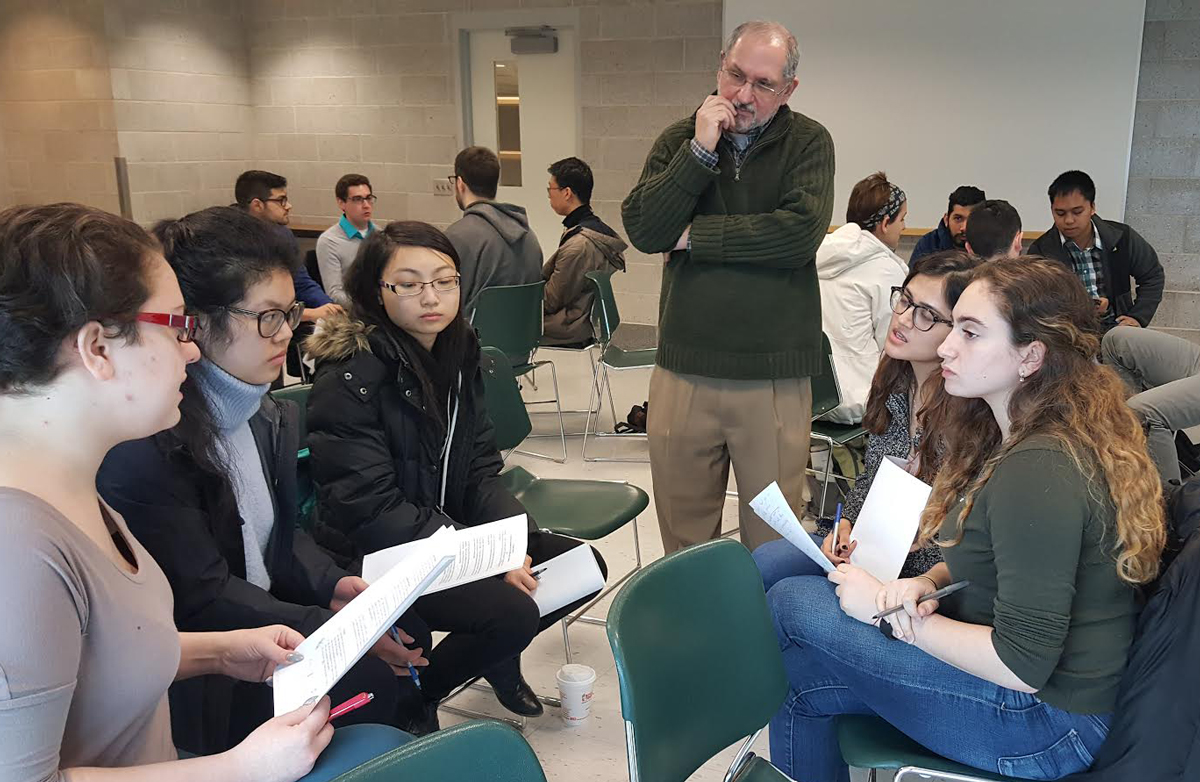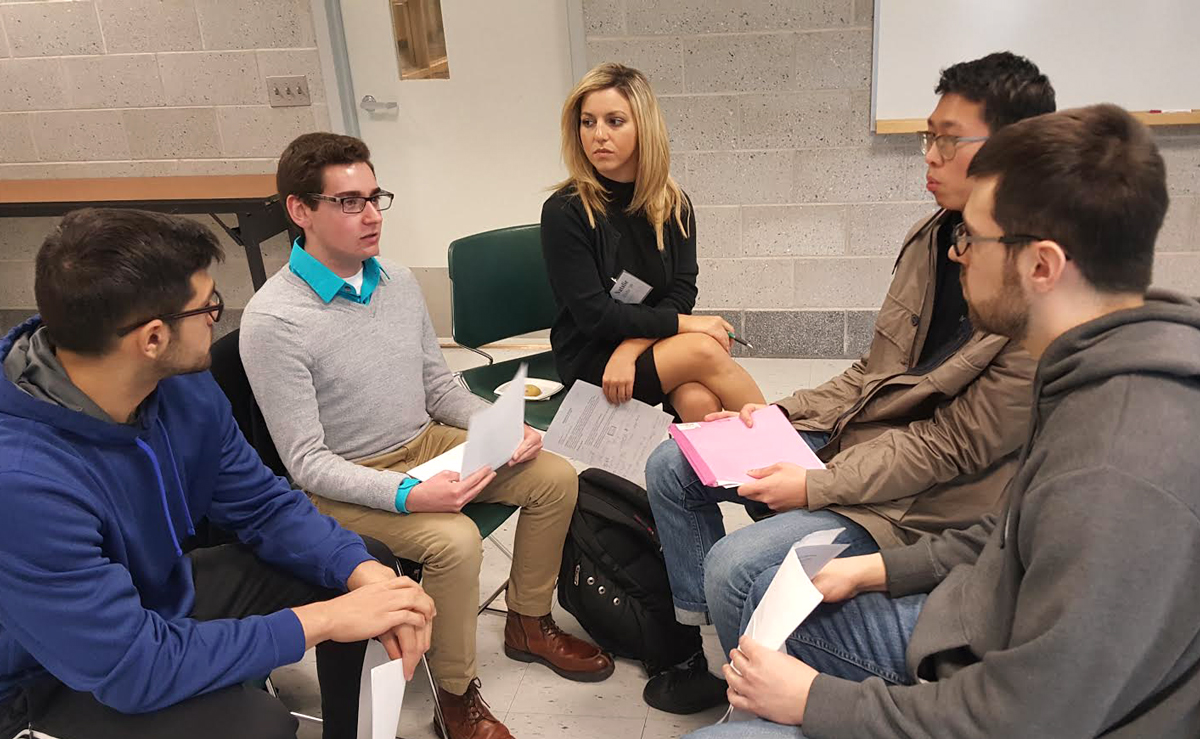Students get first-hand advice about negotiations
Three alumni lead skills and technique workshop.

Three Binghamton University alumni came together to share the importance of proper negotiation techniques to current students.
“You can’t teach negotiations by lecture. You have to dive in and experience it, and learn by doing it,” said Glenn Moss ’75.
Moss, now a general council for Globecast America, spearheaded the Negotiation Skills and Techniques Workshop on March 26 with the help of sponsorships by the Harpur Law Council and Pre-Law Advising.
Natalie Elisha ’09, CEO of Elisha Law, Tyler Patterson ’08, an associate at Tully Rinckey, sat alongside Moss to share their expertise in negotiations with participating undergraduate students.
The three alumni shared similar tips and tricks for nailing negotiations, and shared that negotiations can be found everywhere in life.
“Each of us negotiates from the minute we emerge into this life,” Moss said. “You cry, you scream – you don’t have words but you are making your needs known. Someone has to figure out what those needs are and see if they can meet them. You’re negotiating.”
Though Elisha and Patterson agreed with the statement, they expressed the key aspects of a good negotiator: know what your goals are, be flexible, be respectful and passionate, and take your time.
Negotiation is at the forefront of everything, whether you’re going to be a lawyer, a business person, or a teacher, you’re going to need to understand how to ethically and responsibly get what you want out of a situation, and make it a win-win for them as well.
Natalie Elisha ’09
Elisha graduated from Binghamton University in two years and completed her JD at St. John’s Law School on a full scholarship. At 23, she became an attorney and at 24 she started her own law firm. She is also the author of the book, “The Millenial’s Guide to the Universe.”
Speaking to the undergraduates, Elisha said that the forefront of successful negotiations is knowing what each individual in the negotiation needs and wants.
“Let’s say, for example, we both need this orange. We’re arguing, but when someone says, ‘what’s wrong with you guys, why are you fighting over this?’ we say, ‘we both need this orange.’ In reality, one person is making a pie and needs the skin of the orange, and the other needs the orange for his or her juice cleanse so only the actual fruit is needed. Neither of them realize that they both can win, if they only understood the interest in having the orange as opposed to the position of I need this whole orange,” Elisha said.
Likewise, Moss expressed the importance of deciphering what the aim is in the negotiation.
When you do any negotiation, know what your goals are, in both the macro sense, the big stuff, and the smaller sense, because its not just one issue that you’re talking about but, it’s a range of issues.
Glenn Moss ’75
After graduating Binghamton University as a history major, Moss received his JD from Case Western Reserve University School of Law, and has now gotten involved in both law and teaching law. Through the years, Moss has learned that anyone can be trained to be a skilled negotiator.
“People think there is one type of negotiator, this A-type personality,” Moss said. “That’s who gets stuff, because they project, they scream, they stamp. No. One thing that I’ve learned is that we all have skills, we all have talents. There’s value in that.”
Patterson promoted this idea by focusing on not wasting time negotiating irrelevant information.
“I have seen so many negotiations go array because both sides are fighting over the stupidest thing, and it doesn’t matter,” Patterson said. “Go into it knowing what is really important, what you have to have, know what is really not that important, and see where there is common ground.”
Once he graduated from Binghamton with a bachelor’s degree in political science, Patterson moved on to receive his JD from Penn State University School of Law.
Each of the three alumni also collaborated with the participating undergraduates in a mock negotiation in which groups of four got together to attempt a professional negotiation. Moss, Patterson and Elisha oversaw the groups and gave sound advice on technique throughout the activity.
What each of the three alumni wanted students to get out of this workshop was that negotiation skills could be acquired through practice and diligence.
“Be confident in what you know and what you studied,” Moss said. “But be flexible enough to hear what is being said to you and know that there are many ways to reach a deal that both sides feel OK about. There is no one path to a deal.”


